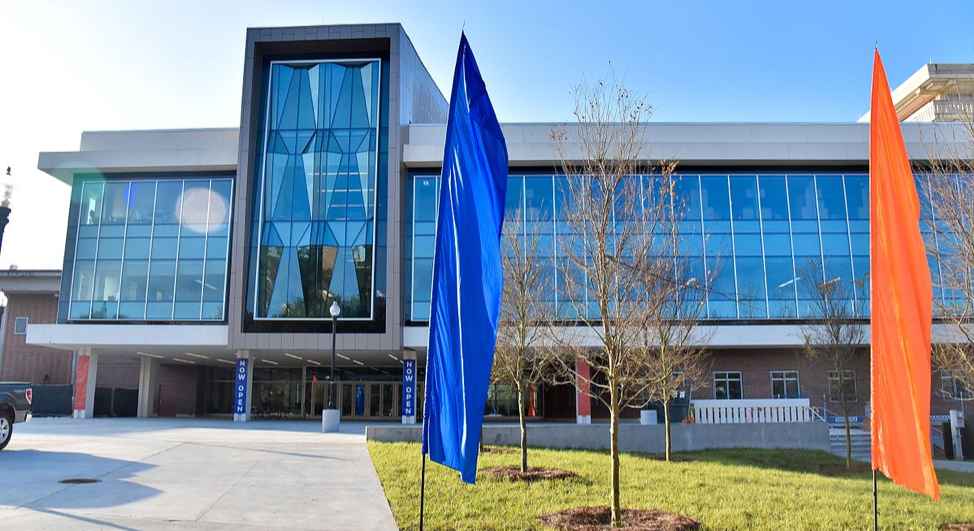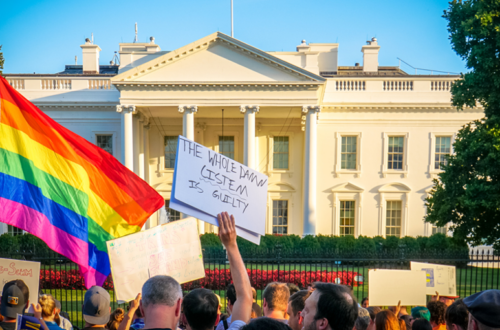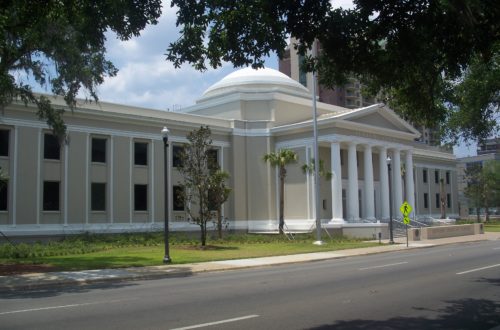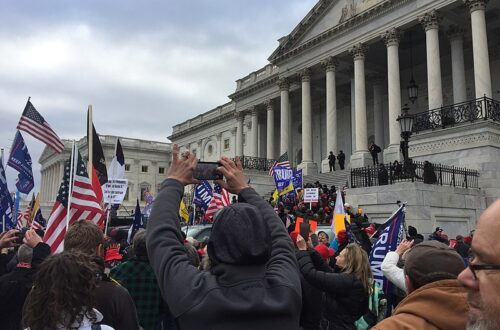The University of Florida, in conflict with its June 18th statement regarding its steps to combat racial injustice, has yet to address the overt racism and homophobia represented by the name of the J. Wayne Reitz Union.
Many of the historical names for buildings on UF’s campus are controversial, including O’Connell, Buckman and Smathers. However, a name symbolizing UF’s hesitation to address its discriminatory past is the J. Wayne Reitz Union.
The Reitz Union is a central fixture of campus — a favorite spot for studying, dining and socializing — yet its namesake did anything but promote the unity, progress and school pride that it has come to encourage.
Julius Wayne Reitz was the fifth president of UF, serving from 1955 to 1967, a period when UF’s enrollment grew from 9,000 to 20,000 students. The university’s sentimental ties to Reitz are rooted in his responsibility for a period of accelerated growth.
However, we cannot allow Reitz’s accomplishments to stand in the way of acknowledging his inexcusable transgressions and the repercussions of his utterly racist and homophobic nature.
During his time as president, Reitz stalled integration and turned away black students. When he did integrate, it was done begrudgingly under court order — issued after Virgil Hawkins, a black student that Reitz denied, sued the school. Reitz quietly admitted seven black students, a mere fraction of the 85 black students he denied in years prior.
Reitz also cooperated with the infamous Johns Committee, an investigative committee within the Florida Legislature. After the committee was humiliated by the NAACP’s lawyers and forced to halt its racist endeavor to undermine the NAACP, it moved to a new victim: homosexuals.
Reitz allowed UF to be a site for interrogating students and staff suspected of being homosexual. At least 15 UF professors and over 50 students left following this harassment.
When asked about personal beliefs in 1988, Reitz stated that “anyone who was a homosexual was a complete aberration.”
In 2012, the Florida Dream Defenders tried to get UF’s Student Government to change the name of the Reitz Union. Eight years have passed, but Student Government and campus administration have depicted the act of changing an offensive building name as an outlandish request. Their argument is that the Reitz family still donates generously to UF.
The frustration with this apathy was demonstrated on Oct. 8 in a protest organized by Ryan Wilder, afourth-year student and co-leader of the LGBTQ+ Senate caucus.
Wilder says the protest was necessary after seeing UF’s “slow start to improving racial relations” following its June 18th statement. He hoped it would push the administration to “listen to the demands of their own students.”
The protest began at the Reitz Union and traveled to Tigert Hall, the administrative building. The chants of its 75 participants denounced racism and homophobia, awakening once again a sense of frustration with the inconsistent initiatives taken by UF to combat injustice.
A common counterargument to this problem has often been writing off Reitz’s actions as typical for his time, effectively discarding a minimum expectation for respect and humanity.
As an innovative and forward-thinking leader, Reitz had no reason to apply these ideas selectively. Doing so undermines his alleged glory and makes clear that his leadership was tainted by hatred and prejudice.
Critics have also questioned what something seeming inconsequential- like changing the name of a building- would do to combat injustice and remedy an unchangeable past.
Renaming the Reitz Union (and other controversial buildings) solidifies UF’s commitment to fighting racism and proving the university is multi-dimensional and ongoing. More importantly, it shows students of color and members of the LGBTQ+ community that their voices are heard and they are welcome on campus.
It is proof of choosing change over stagnation. It lessens the contradiction of a university that is publicly anti-racist and anti-discriminatory but at its core still honors the figures who perpetuated the very injustices it is fighting to mitigate.
Wilder adds that he, a member of the LGBTQ+ community, and other minorities “do not feel comfortable having to walk into a building enshrining someone who discriminated against members of their group.” He reasoned that there is a “difference between wanting to educate about things in the past and memorializing them.”
It is well overdue to change the name of the Reitz Union, hopefully in accordance with suggestions to name it after Virgil Hawkins, the man who is truly responsible for UF’s integration.
After all, it is only right that a location that is so central to campus and so symbolic of student pride and success should reflect these values with a name honoring someone who fought for these values instead of disparaging them.
Featured image: The Reitz Union. Unmodified photo by Reitz Union, used under a Creative Commons License. (https://bit.ly/3dp1FdK)
Check out other recent articles from the Florida Political Review here.





